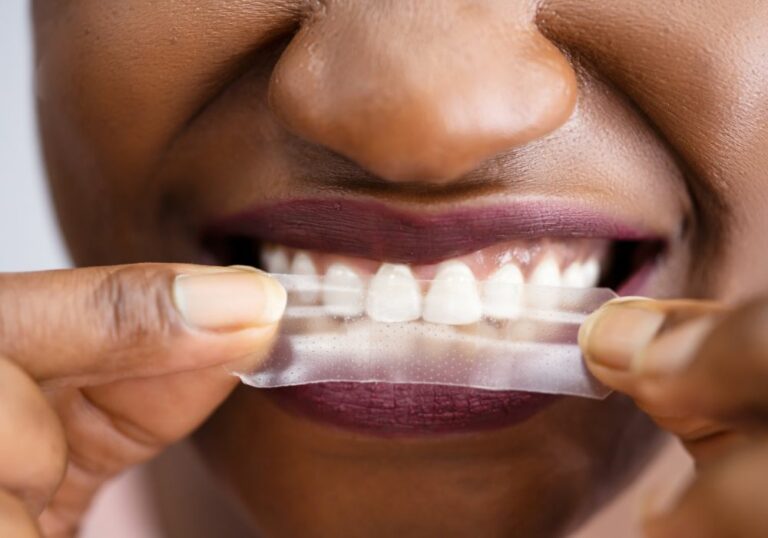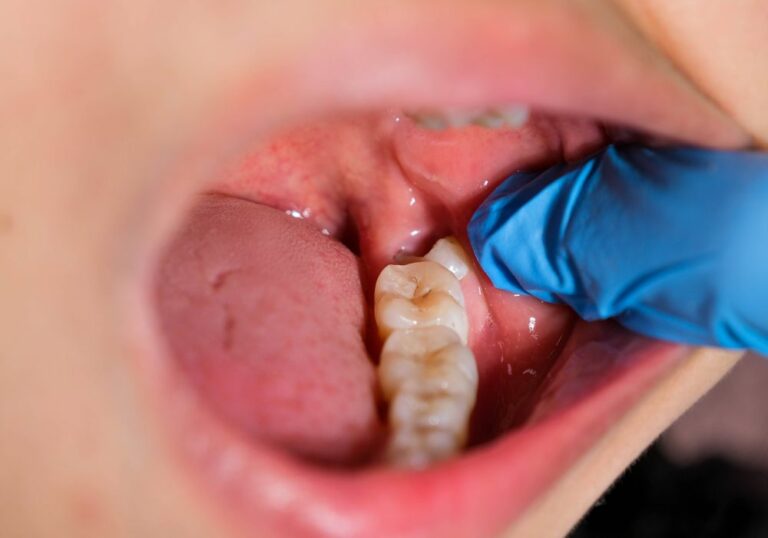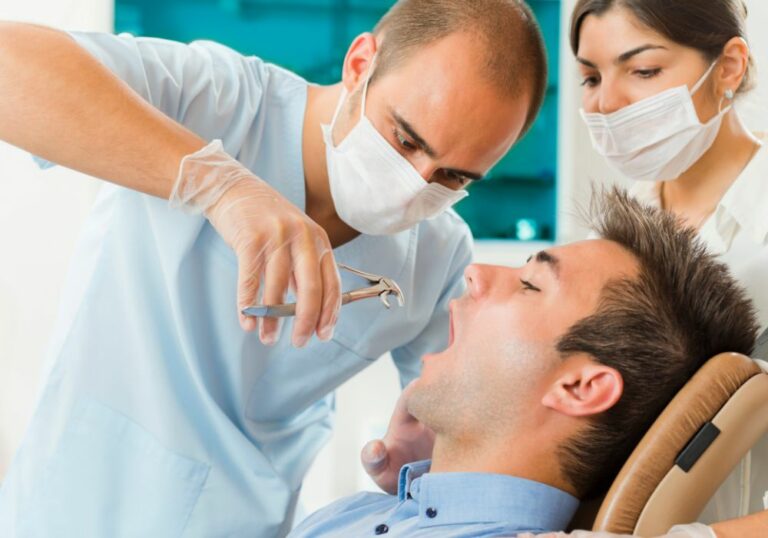Having wisdom teeth removed is something many people dread, but often, it’s a necessary procedure due to the complications they can cause.
But is a sore throat one of these possible issues? In this post, we bring you all the info you need as we answer the question, can wisdom teeth cause a sore throat?
If you want to learn a bit more about wisdom teeth, you can also check out this video before reading on.
What are wisdom teeth?

Before we talk about whether wisdom teeth can cause a sore throat, let’s take a step back first and talk about wisdom teeth in general – what are they, exactly?
Wisdom teeth are the final permanent teeth that appear in our mouths. There are no milk teeth equivalents, and they erupt at the back of our mouths, one on each side, top and bottom when we are around 17 to 25 years old – although they can appear earlier or later.
The problem with wisdom teeth is that by the time they erupt, all our other teeth are already well-developed, and there may not be enough space for them to grow properly.
When there is no space, the wisdom teeth can grow out at awkward angles from the other teeth, or they can become what’s known as “impacted”.
Impacted wisdom teeth occur when they are prevented from fully emerging by the other teeth that are already there, and this is an extremely common problem in many adults.
When wisdom teeth are impacted, it can lead to several complications – so let’s talk about that next.
What complications can arise from impacted wisdom teeth?
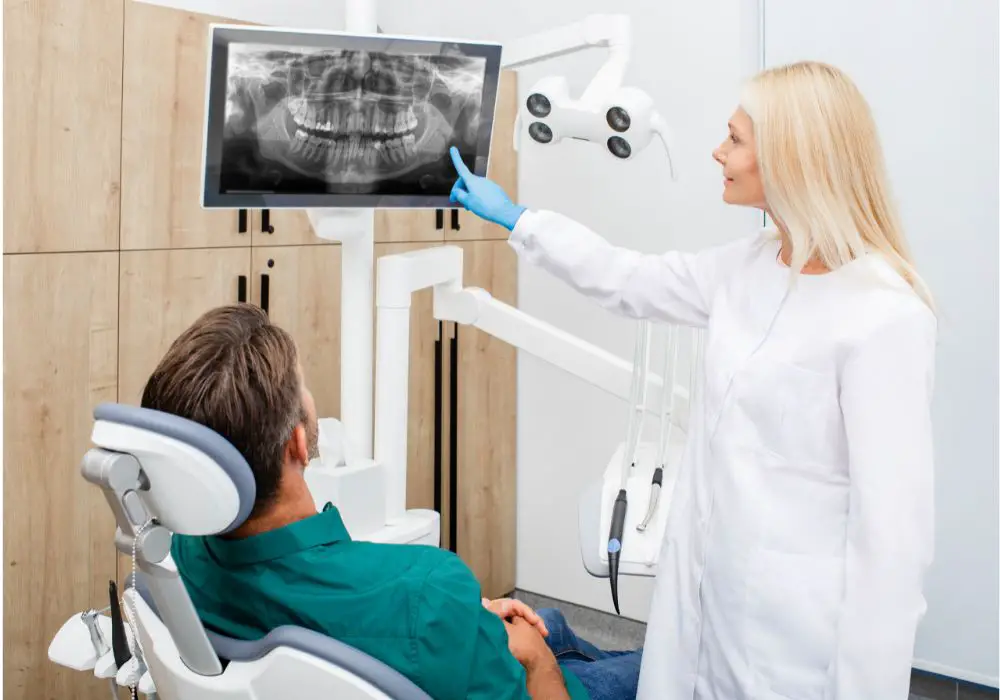
When wisdom teeth grow at angles to the other teeth or are impacted and can’t emerge fully, it can cause certain issues that can often require the intervention of a dental professional to resolve.
For example, when wisdom teeth press against other teeth as they try to emerge, this can cause dull pain in the mouth and jaw.
Furthermore, once they emerge, if they aren’t correctly aligned, they can be difficult to clean because the gaps between the teeth at the back of your mouth are hard to reach with a toothbrush.
In addition, misaligned or impacted wisdom teeth can be partially covered by flaps of gum, and food particles can collect underneath.
Again, this is difficult to clean properly, and those hard-to-reach gaps or teeth partially hidden beneath flaps of gum provide the perfect breeding environment for bacteria. For the same reasons, plaque – and then tartar – can also build up around wisdom teeth.
In such circumstances, it’s easy for an infection to develop due to bacteria, plaque, and tartar, and this in turn can lead to conditions such as gingivitis (gum disease) or dental abscesses, all of which may require a trip to the dentist to resolve.
Can Wisdom Teeth Cause a Sore Throat?

If you develop a complication due to misaligned or impacted wisdom teeth, the pain is unlikely to remain localized and can easily spread to the surrounding area.
This means as well as pain in the affected tooth, you may also experience jaw pain, general tenderness in the area, and red or swollen gums. In some more extreme cases, you may also experience fever or difficulty swallowing.
And yes, it is not uncommon to also get a sore throat due to a complication related to one of your wisdom teeth.
What is the solution?
If you experience any of these symptoms, the best thing to do is book an appointment with your dentist, and if the symptoms are severe, you should do so as soon as possible. Your dentist will then be able to advise you on the best course of action.
In some cases, the dentist may decide to try to manage the symptoms. If you have an abscess, the dentist will treat the abscess, and you should then try to prevent the problem from happening again by maintaining good dental health through regular brushing and flossing.
Using an antibacterial mouthwash can help prevent the bacteria from building up and reinfecting your mouth, and using a saline solution made by mixing a teaspoon of salt into a cup of warm water to rinse your mouth after each time you eat may also help.
Depending on the seriousness of the infection, the dentist may also prescribe a course of antibiotics to help the infection heal.
However, in more serious cases, in recurring cases, or when the dentist deems that the problem is likely to return whatever you do to prevent it, you may be advised that the best option is to have your wisdom teeth removed.
Can you get a sore throat from having wisdom teeth removed?
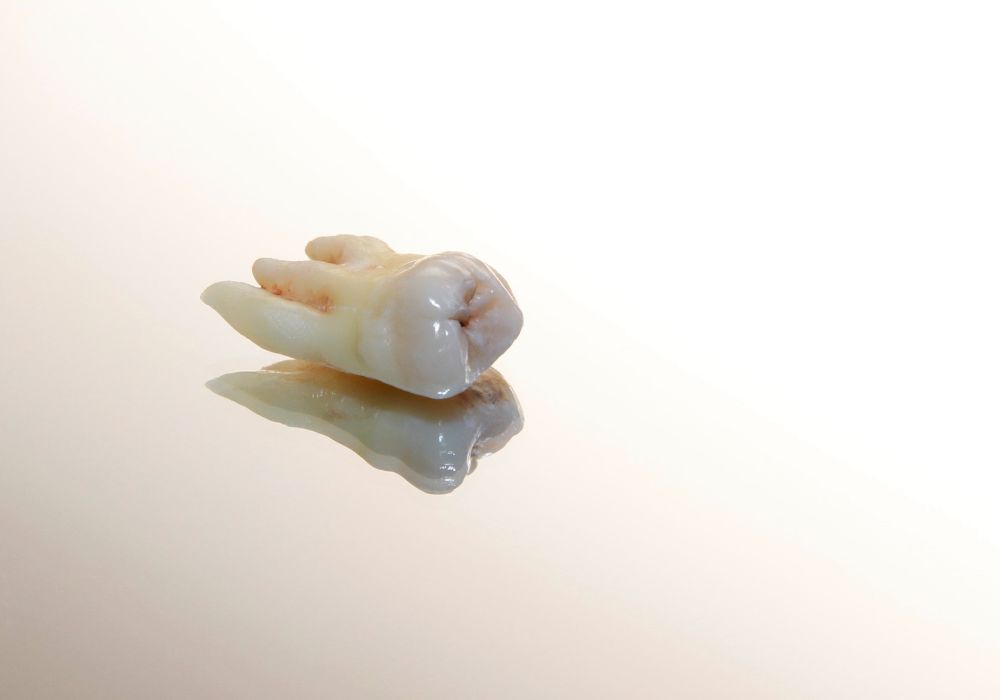
Since wisdom teeth cause complications in so many people, having them removed is an extremely common procedure, and once they are out and everything has fully healed, the good news is that your problems with infections should be over.
However, having your wisdom teeth out is a major procedure, and one of the side effects you may experience from this surgery is also a sore throat. Other possible side effects include a sore jaw, tenderness, and stiff facial muscles.
These symptoms should only last for around three days though, and you should be fully recovered within about one to two weeks.
How to care for wisdom teeth after removal

If you have your wisdom teeth out, you should expect a certain amount of discomfort in the days immediately after the surgery, but there’s a lot you can do to alleviate this, and caring for your mouth and gums properly afterward can help ensure everything goes well.
If you experience a sore jaw or muscle pain, you can apply a warm press to your face to help relieve the symptoms.
Using a warm saline solution as a mouthwash (as described above) can also help disinfect the surgery site, relieving pain and helping to reduce symptoms such as a sore throat.
However, when rinsing your mouth after wisdom teeth removal, you should do so very gently because if you swill the water in your mouth too vigorously, this can dislodge the blood clot that is covering the wound.
When this happens, it can lead to a painful condition called “dry socket” where the jawbone is exposed – it’s far better to avoid this since a dry socket can significantly slow the healing process.
Similarly, don’t spit too forcefully after rinsing your mouth for the first two days – instead, just let the water drip out of your mouth. Again, this is to leave the blood clot intact and to avoid a dry socket.
Finally, stick to soft foods – liquid food like smooth soup is best for the first two days – and try not to smoke at least until the wound is fully healed since smoking is a leading cause of complications post wisdom tooth removal.
When to seek help if you still have a sore throat after wisdom tooth removal
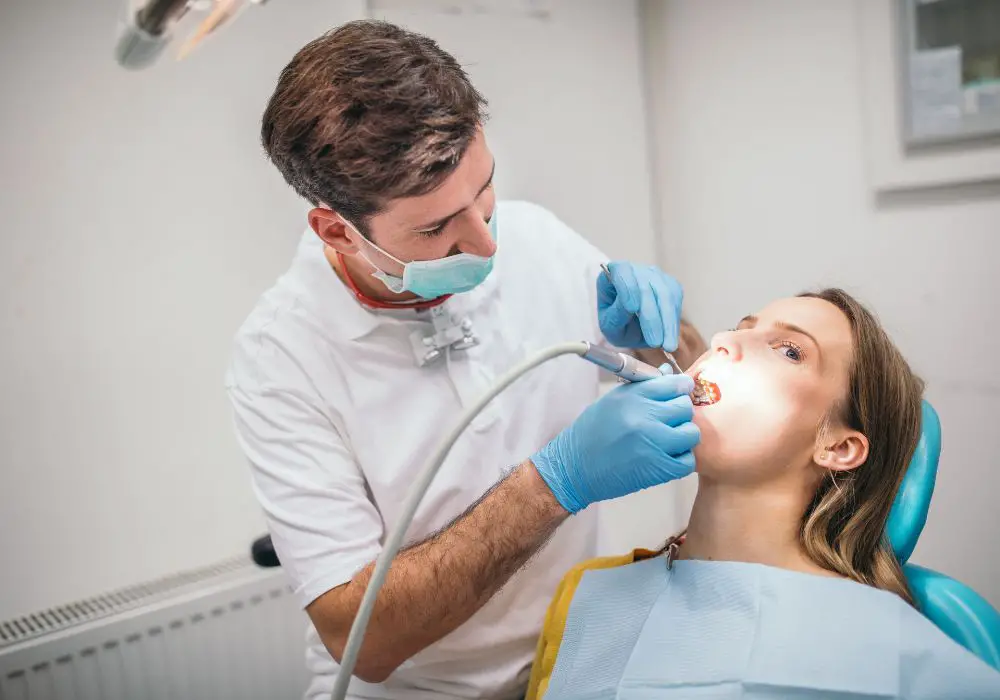
After having your wisdom teeth removed, you should expect a certain amount of pain and discomfort, but this should peak within around 24-72 hours, after which the symptoms will begin to subside, and you will start feeling better.
However, if you are still in significant pain or you are still feeling symptoms such as a sore throat, a stiff jaw, significant tenderness, or bleeding three to five days later, you should contact your dentist for advice.
This way, your dentist will be able to ascertain whether everything is healing as expected or if you are experiencing further unforeseen complications.
FAQs
1. How do I know if my wisdom teeth are causing my sore throat?
If you are experiencing a sore throat and you don’t feel any other pain coming from your back teeth, it probably means your wisdom teeth have nothing to do with your sore throat – there are plenty of other reasons for a sore throat that are unrelated to your teeth.
However, if you are feeling pain in your teeth, swollen gums, general tenderness in the area, or other related symptoms along with your sore throat, then it’s quite possible that there’s a connection.
2. How do I know if I should have my wisdom teeth out?
Your dentist will evaluate the condition of your wisdom teeth when they emerge, and if they are impacted or misaligned, he or she will balance the advantages and disadvantages of having them removed and then advise you accordingly.
3. Does everyone have to have their wisdom teeth removed?
No. Although it is a common procedure, many people don’t need to have their wisdom teeth out since they grow correctly, or the impaction or misalignment is only minor.
4. Can I refuse to have my wisdom teeth removed?
Nobody can force you to have your wisdom teeth removed. However, if you are likely to suffer from recurring infections, pain, and sore throats, enduring wisdom teeth removal just once will ensure you don’t suffer from issues like this for the rest of your life.
Worth getting it over and done with
As we’ve seen, wisdom teeth can cause sore throats, both before and after removal. However, if your wisdom teeth are causing you trouble, it’s usually best to get it over and done with and have them out – because after that, they won’t give you any more problems.




